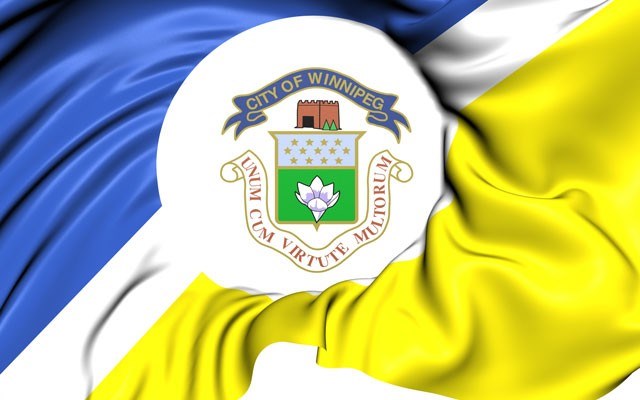I posted a story on Twitter last week about drunken louts pouring beer and aiming racial slurs from a luxury box at a hockey game in Rapid City, S.D. at Aboriginal kids The first response I received didn't denounce the actions, didn't express sympathy for the young fans. Nope. I got a sarcastic, "I thought that only happened in Winnipeg" message.
In the user's defence (he's actually the father of a friend), he wasn't disputing the severe disadvantages First Nations people in the Manitoba capital face, and was genuinely eager to find a solution to these issues.
But the "Why are you picking on us?" knee-jerk was the crescendo rising from my hometown late last month when a Maclean's magazine feature proclaimed the city as "Where Canada's racism problem is at its worst." Watching the reactions to the story in a city I'd lived in for all but 15 months of my life has been curious.
Mayor Brian Bowman, elected just three months ago, called a press conference the afternoon the story came out, gathering a crowd of fellow politicians and Aboriginal leaders to pledge more must be done to fight racism. Bowman, who is Métis, teared up during his speech.
On Facebook, about a dozen friends shared the story the day it dropped, each with a comment to the effect of "Preach, Maclean's!" or without feeling they had anything to add to reporter Nancy Macdonald's work.
Of course, there were some who jumped straight into "Deny, deny, deny" mode, most notably provincial Progressive Conservative leader Brian Pallister, a white fella who said the claims of racism were "not (his) experience." Thanks for coming out, Brian.
Some argued electing a Métis mayor proves how "not-racist" the city is. It should be the furthest thing from a campaign issue, but his ancestry didn't regularly come up and wasn't common knowledge.
The strangest criticism, though, came from the media itself.
Granted, some rightly observed the magazine doesn't have a Winnipeg-based reporter, and hasn't paid much attention to some of the city's recent successes and some other overwhelming failures.
Some writers explained they and their publications have doggedly reported on issues facing First Nations people in the community — complete with local "nuance." All well and good, but it doesn't need to come with the addendum that Winnipeggers aren't being told anything they didn't already know.
Bringing in a talented and experienced outsider to investigate has proven useful in a plethora of circumstances, whether it's looking into the actions of governments or police departments. Investigators shouldn't be influenced by the local "nuance" and can question why it exists. In this case, Maclean's had the best of both worlds, as Macdonald grew up in Winnipeg and though she hadn't lived there for a decade, was a regular visitor.
The oddest response came at the end of a radio interview featuring Macdonald being grilled by morning show host Dave Wheeler.
Wheeler took issue with Macdonald's claim that she loves the city, arguing the local efforts to empower First Nations youth Macdonald detailed in the story should have counted for more in the rankings, and that she should have accentuated the positives.
"Someone that loves this city goes to bat for the city. It doesn't paint it in a horrible light," Wheeler charged.
Macdonald responded by saying, "How I express my love is trying to shine a light on some dark issues."
What both Macdonald and Wheeler failed to acknowledge was how our country's unwillingness to honour the treaties our ancestors signed are the starting point for creating the vulnerability First Nations people face. The fire flares up further when they start demanding what's fair.
In the story, the word "racism" doesn't appear until the 23rd paragraph, though the headline states: "Welcome to Winnipeg: Where Canada's racism problem is at its worst."
Macdonald, who did not write the headline though she stands by it, leads the article with a high-school teacher posting a less-than-reverent rant against indigenous people on Facebook, doesn't actually seem to necessarily be building the argument the headline trumpets.
Instead, Macdonald paints a picture of how challenging life in Winnipeg can be for indigenous people, certainly in large part due to racism, but let's not discount the unmentioned sexist and classist attitudes, either.
The statistics she cites aren't city specific, as they reflect attitudes of Manitoba as a whole or the lumped-together prairie of Manitoba and Saskatchewan. So, no, it's not an issue specific to Winnipeg. And racism there may not necessarily be worse, or even the worst, but having the largest urban indigenous population in the country (3.6 per cent as of the 2011 census in addition to 6.5 per cent who identify as Métis) increases the chance of poor attitudes surfacing.
But shouldn't the fact there is racism at all be the initial source of anger? With the conversations started in the city, it now has a chance to develop better strategies to fight the issues facing marginalized parts of the population, which will hopefully start soon with the launch of a civic government website seeking suggestions.




